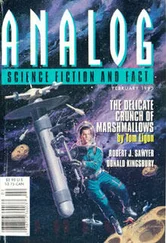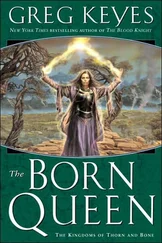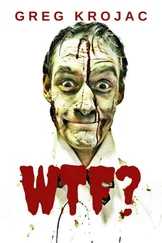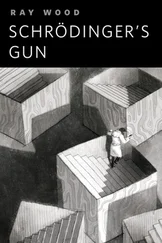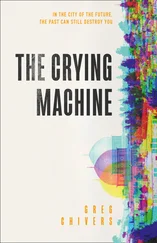Triggs pulled his hazmat helmet back over his head and went out to their van that was parked at the front of the house, and returning with four black body-bags. He opened up one of the body bags and clumsily pulled Melody off the sofa by her feet. Her body made a loud thump as she slumped onto the floor, leaving an ugly diarrhoea stain on the seat cushion. Triggs smirked.
“That stain won’t never [5] Southerner would probably say “won’t ever” or even “won’t never”. Depends how intense you want to get with the accent.
come out.”
Melody was now laying on the floor in an undignified pose, limbs twisted at strange angles. Nolan rearranged her arms and legs so that she no longer looked like a Barbie doll that had been tortured by a two-year-old.
“OK Triggs. Let’s zip this one up.”
He took hold of Melody’s legs and placed them into the body-bag, then he grabbed underneath her armpits, lifting her more gently than one might expect into the body bag. He pulled the zipper closed.
“One down, three to go, Triggs.”
He repeated the process with Carole-Anne and placed her beside her sister. Then he searched the house, looking for money and jewellery, before picking up the two remaining unoccupied body-bags and returning to the main bedroom, where the corpses of Nadine and her would-be protector were still where he had left them. Triggs counted his booty.
“Not a lot here, Triggs. Just some cash. Three hundred and twenty-five bucks and some change. It’ll have to do.”
He dropped the empty body-bags on the floor, and dragged Nadine off the bed and onto a body-bag. She landed almost perfectly, Triggs only having to tuck her feet and head inside before sliding her engagement ring and wedding ring from her finger and zipping up the bag. He carried the mother and her daughters out to the van and carelessly tossed them into the back. Then he went back into the house to fetch Nolan.
His partner was a good deal heavier than the women had been and it took Triggs all his strength to hoist his ex-partner’s body-bag onto his shoulder and carry it outside, He opened the rear door of the van, almost dropping Nolan in the process, and then let him fall off his shoulder into the van. A couple of shoves to Nolan’s feet, so that he could close the rear doors, and he was ready. He slammed the doors closed, went round to the front of the vehicle and climbed into the driver’s seat.
He was supposed to take the bodies to one of the Seattle district’s overworked crematoriums for instant disposal, but instead he and his four dead passengers were going to take the I-90E out of the city. Seattle was the worst hit area at the moment, so he would head east. He had no idea what he was going to do when he got there, but at least he’d be a couple of thousand miles away from the west coast. But first, he had to go home and pick up his family.
He arrived at his apartment after a short drive, calling out to his family as he turned his key in the door lock.
“Carol, Shaun, Lynette? Git some bags packed. We’re goin’ on a road trip.”
He was surprised when nobody answered him, but soon discovered the reason for the silence when he went into the bedroom. His wife, Carol, and his daughter, Lynette, were laid out on the bed just as Nadine had been, covered in their own bodily waste. Triggs turned to the bedroom chair, where his sixteen year old son, Shaun, was sitting upright, his vacant eyes staring straight ahead. Triggs went over to the boy.
“Shaun. Wake up boy. We gotta go.”
The boy didn’t move. Triggs slapped his son’s face.
“Wake up Shaun. I knows you ain’t dead. You ain’t covered in shit like your ma [6] the use of “ma” and “pa” is something I’m going back and forth on. Depends exactly how rural you want to go. In the small Texas town I grew up in, nobody would use this. But if Triggs and his family are very rural, like living on a farm, then this would be suitable. Otherwise “mom” and “dad” are fine.
and sister.”
Triggs struck the boy again, and this time it pulled him out of his shock-induced trance. He looked at his father, life returning to his eyes.
“I couldn’t do nothin’, Pa. All I could do was put ’em on the bed.”
Triggs showed uncharacteristic compassion for his son, leaning forward and resting his hand on the teenager’s shoulder.
“You did good, son. You did good.”
Shaun looked at Triggs and gave a half-smile, grateful for this rare show of affection from his father.
“What now, pa?”
Triggs stood up.
“Now, we go on a road trip. We’re headin’ east, boy.”
“But what about Ma and Lynette? We can’t just leave ’em there.”
“Look Shaun, I’ve spent the last twenty-four hours picking up dead bodies – messed up bodies just like your ma and sister – and I don’t wanna do that no more. We’ll leave them where they are. Won’t bother ’em none.”
Shaun wanted to protest but now he needed his father – such as he was – and didn’t want to be left behind, so he quickly gathered up a backpack with what he considered essentials.
Twenty minutes later they were on the road, at the start of a foreboding two and a half thousand mile drive, although Shaun wasn’t much impressed with the cargo of corpses that slid around the back of the van with every turn. Eventually the constant movement got to his father too, so after a while the van pulled over to the side of the road and father and son unceremoniously dragged the body bags out of the vehicle and dumped them by the side of the road, before continuing their journey four passengers lighter.
5 May – Infected 130,468,750 Dead 204,575
“We can’t stay here for the rest of our lives. We’ll go stir crazy.”
Jason Green had to concede that what Patrick Dunbar was saying was true, but it would still be difficult to leave the familiarity of the neighbourhood. It had once been a thriving little community, where everybody knew everyone else and – more importantly – looked after each other. They’d managed to find just the right balance of caring for one another while still respecting the privacy of the individual, but their numbers were severely depleted now. What had once been a thriving community of over one hundred families and friends had been reduced by the plague to just Jason and the other eight adults that now sat in Patrick and Sally Dunbar’s front room discussing the future, while the Dunbars’ two-year-old twin daughters slept upstairs, blissfully unaware that their futures were being discussed on the floor below.
Burt Prentice, who had been born in his small townhouse seventy-one years ago, and had lived there for the last fifty years with his wife, Mary, was reluctant to go anywhere.
“I’ve lived here all my life and it’s never seemed like a prison to me. I like having my old furniture around me. I like having my familiar things on hand. I’m too old to start gallivanting around the country, and so is Mary.”
Mary was torn between leaving and staying. She loved her little house, but she could see the logic of leaving the area too. Bottled water was in short supply now after the looting and there wouldn’t be any fresh deliveries to the local stores. Drinking tap water was out of the question as the mains water supply couldn’t be trusted. She knew that it would probably be a good idea to be prepared and make a move before supplies ran out. But Burt had always looked after her well, and she wouldn’t challenge his opinion now, not when he needed affirmation of his role in what was left of society. He’d been the production manager at a small but busy local electrical components manufacturer and had always had an air of authority about him. Both he and Mary knew that that authority had diminished since his retirement, but he still enjoyed the respect of his community. The last thing he needed was a confrontation with his wife. Anyway, Mary sensed the majority of the people at the meeting would agree with Patrick Dunbar and if there was one thing that Burt believed in, that thing was the Democratic Process. He may not want to leave the area but – if the majority decided to do so – then he would do the same. He would have no choice; they both knew that there was no way that either of them could survive long without the rest of the group.
Читать дальше


